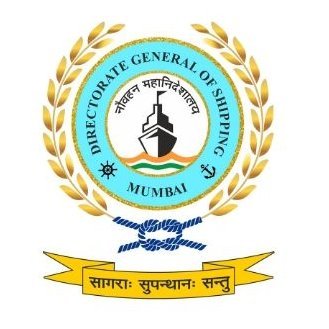
DG Shipping constitutes committee to review Collective Bargaining Agreement for seafarers
MUMBAI : The Directorate General of Shipping (DGS) has constituted an expert committee to review various aspects of the Collective Bargaining Agreement (CBA) – the process of negotiation between employees and employers regarding the terms of their contracts – and other provisions of the Maritime Labour Convention (MLC) applicable to Indian seafarers.
The committee will examine the current CBAs for Indian seafarers, assessing their benefits, limitations, and adequacy of provisions concerning wages, working hours, safety, welfare, and dispute resolution, according to a recent order by the DGS.
The committee was set up to address issues and challenges faced by Indian seafarers regarding contractual matters. There are over 3.5 lakh Indian seafarers.
India supplies 10-12 per cent of the seafarers for the global commercial fleet. Indian seafarers are highly regarded for their technical proficiency, fluency in English, and adaptability to international standards, which has led to increased employment opportunities for them on international vessels.
Advancements in maritime technology have created a growing demand for highly skilled personnel capable of operating automated and eco-friendly vessels. Indian training institutes are adapting to these changes to prepare seafarers for future demands.
Despite the positive growth trend, challenges remain, such as addressing the high-stress nature of seafaring, ensuring consistent support, and adapting CBAs and other aspects of the MLC to prioritise the well-being and sustained growth of seafarers.
The committee will include members from the maritime industry, including representatives of reputable shipping companies, allied offices, and other relevant stakeholders, to address seafarers’ issues and promote their well-being at sea and ashore.
The committee will also review the alignment of existing CBAs with national and international standards, including conventions like the MLC; the applicability of various current CBAs in India; the applicability of CBAs for Indian seafarers on Indian, coastal, and foreign-going ships; and the determination and applicability of seafarers’ minimum wages.
The committee will also ascertain the role of the DGS in the recognition or determination of seafarers’ wages and suggest measures, including references to other ministries or bodies involved in determining minimum wages, and recommend any necessary amendments to the MS Rules or DGS guidelines to reflect the correct legal position regarding seafarers’ wages.
Daniel J Joseph, Deputy Director General of Shipping, DG Shipping, told that, as per the Allocation of Business Rules 1961, the Ministry of Labour and Employment (MoLE) is the nodal authority for notifying minimum wages for labourers in India. However, for seafarers, the DGS is the nodal authority as per the MS Act. The committee will decide what can be done to accurately determine the minimum wages for seafarers or how to collaborate with MoLE on the matter.
It will also review death and disability compensation for seafarers and their applicability, the DGS order said. Death and disability compensation for seafarers on Indian and foreign ships differ, and whether it should be standardised across all ships or remain different for various types of ships will be decided, Joseph said.
Sanjay Prashar of the Mumbai-based VR Maritime Shipping said in a social media post that, for the first time, the Indian government (DG Shipping) is discussing the Seafarers Employment Agreement (SEA) with industry experts. This means the Government of India may declare a minimum salary for Indian seafarers on all types of ships.
The DGS is focused on addressing several issues for seafarers, with a clear agenda. Human rights at sea are as important as securing employment for Indians at sea, said Prashar, who attended a recent meeting on the issue.
The Standard International Transport Federation CBA has a $100,000 cover on foreign-going vessels. This is not compulsory, as desperate seafarers often work for much less. If the government prescribes a minimum wage, they may not get jobs. So, it’s a balance, said an industry source. “Let’s see what comes out of the expert committee. Good foreign companies are already paying more than what seafarers earn on Indian-flag vessels,” he added.

